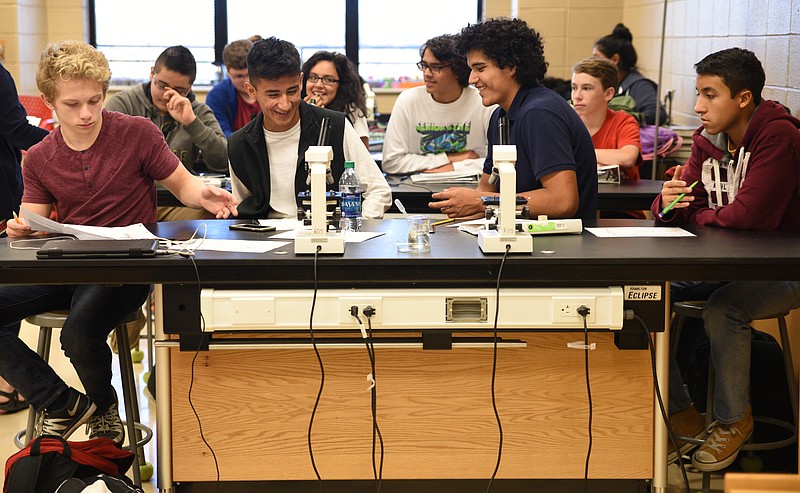Just when you thought you were beginning to understand millennials, along comes Generation Z.
And, according to the first significant study of the generation by Barna Group, they're a little different. They're the most diverse generation the research group has observed: they appear to be de-prioritizing family, and twice as many of them identify as atheists as the general population.
So we wonder, are the kids all right?
Barna, for the purposes of its research, identifies Generation Z as people born between 1999 to 2015. However, its study includes only Generation Z teenagers from ages 13 to 18.
While some of the study's findings - its de-prioritization of family and its atheistic tendencies - may alarm some, we would be more alarmed if those findings remain the same when members of the generation are 30 or 40 or 50.
After all, what teenagers haven't felt their family was a drag, a bore, totally out of it, unbelievably old-fashioned? And what teenagers haven't rebelled against religion, against having their parents' beliefs forced down their throat, against being dragged weekly to a place where they don't feel comfortable?
With the exception of Generation Z, according to Barna, all generations rank family background and upbringing as most important among 10 choices to their self-worth. Generation Z, however, puts professional and educational achievement on top. Family also ranks behind hobbies/pastimes, gender/sexuality and group of friends for the generation and about on par with religion and religious beliefs.
But when you're between 13 and 18, professional and educational achievement are on your front burner. At 18, most respondents haven't completed their education, and practically all of them still have their professional achievement ahead of them. As for the other categories, those who have been teenagers and are willing to be honest about it remember how self-involved those years were. So, hobbies/pastimes significantly important? Check. Gender/sexuality? Check. And group of friends? Check.
At this point, we don't think Generation Z's priorities are likely to be much different from other generations as its members age.
Since the United States is a much more secular country than it was 10, 20, 30 or more years ago, the atheist identification doesn't surprise us. In fact, Barna calls Generation Z "the first truly 'post-Christian' generation."
While 75 percent of baby boomers (born 1946 to 1964) identify as Christians, only 59 percent of Generation Z members do. And while only 6 percent of all adults identify as atheist, 13 percent of Generation Z members do.
Of those in Generation Z who consider themselves non-Christian, according to the report, the thought that God would allow so much evil or suffering in the world is their greatest barrier to faith. That is followed by "Christians are hypocrites," "I believe science refutes too much of the Bible," "I don't believe in fairly tales," "There are too many injustices in the history of Christianity," "I used to go to church, but it's just not important to me anymore" and "I had a bad experience at church/with a Christian."
Members of Generation Z also say science and the Bible refer to different aspects of reality (as opposed to members of Generation X - born 1965 to 1983 - and baby boomers who say science and the Bible can be used to support the other). And a majority of the generation's members who say church is not too or not at all important say so because "church is not relevant to me personally."
Most of those responses, though, rather than being enlightening, either are typical of teenagers questioning their faith or of persons who have done little serious study of Christianity. It's true for all generations that fewer Americans are declaring they are Christians and more are saying they have no beliefs, but we are confident those numbers will change for members of Generation Z as they have for all generations who mature from teenagers to adults.
What we do believe will be a positive aspect about the generation, and one that will be somewhat enduring, is the ability for its members to interact with people who are different from them. Differences unnecessarily breed fear, but Generation Z teenagers seem not to have succumbed to that fear.
Forty-three percent of white teenagers, according to the report, say they interact with people different from them, while 38 percent of blacks and 29 percent of Hispanic teens say it. Of those who do interact with people different from them, 28 percent of blacks "especially enjoy" it, as do 21 percent of Hispanics and 15 percent of whites.
One can have legitimate differences of opinion about immigration, illegal immigration and refugee resettlement, but people who learn to interact with those who are different from them are likely to be happier, have more friends and cultivate a better understanding of the world.
So, are the kids all right? As with most teenagers, their elders may not think so now, but we believe they will be.
